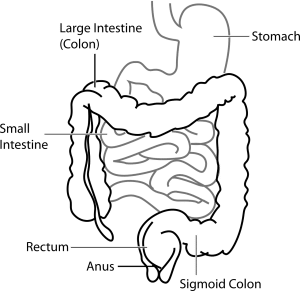There’s no denying it: we’re all getting older. Aging is not something that any of us can avoid – and hey, it’s not so bad, considering the alternative! But that doesn’t mean that we don’t want to age well. Whether you’re thinking about looking your best, feeling your best, or both, there are certain lifestyle habits that could be keeping you from living your best life, now and later on. Know what they are so you can make the healthiest choices possible, and consider adding in some positive habits, so you can shine on for years to come!
1. Not Getting in Your Zzzz’s

Your later years are certainly not the time to skip out on your beauty sleep. You might think that you need less sleep as you age, but that’s actually not true. Your sleep patterns might change, but you still need to shoot for a good 7 or 8 hours a night. Not getting enough sleep can keep you from being at your best during the day, can cause unnecessary stress and begin to affect your mental and physical health.
To get more sleep, first rule out any medical concerns with your doctor. Then, try solutions like sticking to a bedtime schedule, limiting naps, getting more exercise, and keeping screens out of your bedroom.
2. Stressing Out
Stress is everyone’s enemy, young and old. But did you know that studies show stress can actually change your brain function? These studies suggest that letting go of stress can help you avoid cognitive impairment and keep your mind younger and fresher for longer. How to lighten some of the load? Try some simple relaxation techniques, including listening to music, doing a few easy yoga poses, journaling, talking to a friend, practicing mindful meditation (not sure how? Try an app like Headspace or Calm), or even just sitting quietly and closing your eyes (add in a stress ball or fidget spinner if you like!).
3. Forgetting to Forgive

It may surprise you to know that studies have actually been done on how the ability to forgive others affects us physically, as well as psychologically. And the results are in: the benefits of forgiveness include lower blood pressure, less depression, less stress, and less anxiety. Forgiving can also help you let go of unhealthy anger, which can contribute to muscle tension, heart problems, and decreased immune function. Not only that, but when you let bygones be bygones, you can go back to living a more productive life – and you’ll probably end up with fewer frown lines!
Where do you start with forgiveness? Well, start by forgiving the small things. Then, when it comes to the bigger hurts, talk them through with someone, and try to find ways to look on the bright side. Instead of stewing with resentment, work towards your own happiness and focus on the good in your life.
4. Passing on Fruits and Veggies
You might need fewer calories as you age, but where you get those calories still matters! Being a junk food addict or a strictly meat and potatoes person is not going to cut it when it comes to keeping you looking and feeling your best. Want a healthy glow as you age, as well as a healthy gut and heart? Remember to eat your rainbow (lots of colorful fruits and veggies), as well as heart-healthy omega-3 fatty acids and fiber-rich whole grains.
5. Sneaking Out for a Smoke
This one might be both the easiest and hardest habit on the list – the easiest to identify as extremely unhealthy, but the hardest to quit. But there are plenty of reasons to look for a way to kick the butts, both for health reasons and aesthetic reasons. Studies show that in addition to shortening your life by increasing your risk for heart and lung disease, as well as cancer, smoking can activate enzymes that break down the elasticity of your skin, giving you a more wrinkled and pasty appearance. Hey, we won’t judge: whatever reason motivates you to quit is a good one! Remember, quitting can be very difficult, and might take a few tries. Talk to your doctor, try nicotine gum or patches, go to a support group – just don’t give up.
6. Hitting the Bottle Too Hard

This is a tough one. We’re often told conflicting things, like “drink at least one glass of red wine a day” and “stay away from alcohol completely for optimum health.” A moderate amount of alcohol (especially red wine) might have some benefits in moderation, but the real issue is that what is “moderate” changes as you age. According to the American Geriatrics Society, more than one drink a day for an older man and half of one for an older woman can be too much. Drinking too much can lead to cognitive decline, and could contribute to dangerous falls. Remember also that alcohol can interfere with certain medications, so be sure to talk to your doctor about whether it’s ok for you to indulge now and again.
7. Settling into That Groove in Your Couch
Listen up, couch potatoes! Think you should slow down as you age to prevent injury and accidents? Definitely not – in fact, nothing could be further from the truth. According to the Centers for Disease Control, physical activity can help control arthritis and maintain healthy bones, stamina, and muscle strength, all of which help prevent falls. It also reduces the risk of dying from heart disease, colon cancer, and type 2 diabetes. Not only that, but, according to a study by the National Institute on Aging, exercise might even improve your memory. How much more could you ask for as you age than staying healthy, mobile, independent and sharp?
It’s easy to add more movement into your day. The CDC recommends fitting in 150 hours a week, which you can break down into 30 minutes a day, 5 times a week, or you can try “fitness snacking,” which means scattering a few minutes of exercise throughout the day. The most important thing is to find something you enjoy: try strolling with a friend, going for a swim, taking a leisurely bike ride, or following along with an online yoga class. Even a session of dancing around the house with your sweetie counts!
Aging happens to the best of us. We can’t turn back time, and our bodies and brains are going to inevitably change – we can’t control that. But what we can control is how we approach aging, and how we treat our bodies as we get older. With a little tweaking of our daily habits, we can continue on a path to a long and healthy life.







